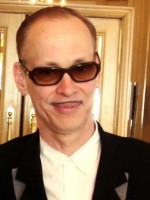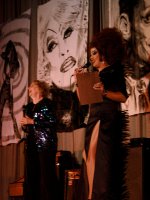Divine is a Actor, Writer and In Memory Of American born on 19 october 1945 at Baltimore (USA)

Harris Glenn Milstead, better known by his stage name Divine (October 19, 1945 – March 7, 1988), was an American actor, singer and drag queen. Closely associated with the independent filmmaker John Waters, Divine was a character actor, usually performing female roles in cinematic and theatrical appearances, and adopted a female drag persona for his music career.
Born in Baltimore, Maryland to a conservative middle-class family, Milstead developed an early interest in drag while working as a women's hairdresser. By the mid-1960s he had embraced the city's countercultural scene and befriended Waters, who gave him the name "Divine" and the tagline of "the most beautiful woman in the world, almost." Along with his friend David Lochary, Divine joined Waters' acting troupe, the Dreamlanders, and adopted female roles for their experimental short films Roman Candles (1966), Eat Your Makeup (1968), and The Diane Linkletter Story (1969). Again in drag, he took a lead role in both of Waters' early full-length movies, Mondo Trasho (1969) and Multiple Maniacs (1970), the latter of which began to attract press attention for the group. Divine next starred in Waters' Pink Flamingos (1972), which proved a hit on the U.S. midnight movie circuit, became a cult classic, and established Divine's fame within the American counterculture.
After starring as the lead role in Waters' next picture, Female Trouble (1974), Divine moved on to theater, appearing in several avant-garde performances alongside San Francisco drag collective, The Cockettes. He followed this with a performance in Tom Eyen's play Women Behind Bars and its sequel, The Neon Woman. Continuing his cinematic work, he starred in two more of Waters' films, Polyester (1981) and Hairspray (1988), the latter of which represented his breakthrough into mainstream cinema. Independent of Waters, he also appeared in a number of other films, such as Lust in the Dust (1985) and Trouble in Mind (1985), seeking to diversify his repertoire by playing male roles. In 1981, Divine embarked on a career in the disco industry by producing a number of Hi-NRG tracks, most of which were written by Bobby Orlando. He achieved global chart success with hits like "You Think You're a Man", "I'm So Beautiful", and "Walk Like a Man", all of which were performed in drag. Having struggled with obesity throughout his life, he died from cardiomegaly.
Described by People magazine as the "Drag Queen of the Century", Divine has remained a cult figure, particularly within the LGBT community, and has provided the inspiration for fictional characters, artworks and songs. Various books and documentary films devoted to his life have also been produced, including Divine Trash (1998) and I Am Divine (2013).
Divine considered himself to be male, and was not transgender or transsexual. He was gay, and during the 1980s had an extended relationship with a married man named Lee, who accompanied him almost everywhere that he went. They later separated, and Divine went on to have a brief affair with gay porn star Leo Ford, which was widely reported upon by the gay press. According to his manager Bernard Jay, Divine regularly engaged in sexual activities with young men that he would meet while on tour, sometimes becoming infatuated with them; in one case, he met a young man in Israel whom he wanted to bring back to the United States, but was prevented from doing so by Jay. This image of promiscuity was disputed by his friend Anne Cersosimo, who claimed that Divine never exhibited such behavior when on tour. Divine initially avoided informing the media about his sexuality, even when questioned by interviewers, and would sometimes hint that he was bisexual, but in the latter part of the 1980s changed this attitude and began being open about his homosexuality. Nonetheless, he avoided discussing gay rights, partially at the advice of his manager, realizing that it would have had a negative effect on his career.
Divine's mother, Frances Milstead, remarked that while Divine "was blessed with many talents and abilities, he could be very moody and demanding." She noted that while he was "incredibly kind and generous", he always wanted to get things done the way that he wanted, and would "tune you out if you displeased him." She noted that in most interviews, he came across as "a very shy and private person". Divine's Dutch friends gave him two bulldogs in the early 1980s, on which he doted, naming them Beatrix and Claus after Queen Beatrix and her husband Prince Claus of the Netherlands. On numerous occasions he would have his photograph taken with them and sometimes use these images for record covers and posters. Divine suffered from problems with obesity from childhood, caused by his love of food, and in later life his hunger was increased by his daily use of marijuana, an addiction that he publicly admitted to. According to Bernard Jay, in Divine's final years, when his disco career was coming to an end and he was struggling to find acting jobs, he felt suicidal and threatened to kill himself on several occasions.
Source : Wikidata
Divine

Birth name Harris Glenn Milstead
Nationality USA
Birth 19 october 1945 at Baltimore (USA)
Death 7 march 1988 (at 42 years) at Los Angeles (USA)
Nationality USA
Birth 19 october 1945 at Baltimore (USA)
Death 7 march 1988 (at 42 years) at Los Angeles (USA)
Harris Glenn Milstead, better known by his stage name Divine (October 19, 1945 – March 7, 1988), was an American actor, singer and drag queen. Closely associated with the independent filmmaker John Waters, Divine was a character actor, usually performing female roles in cinematic and theatrical appearances, and adopted a female drag persona for his music career.
Born in Baltimore, Maryland to a conservative middle-class family, Milstead developed an early interest in drag while working as a women's hairdresser. By the mid-1960s he had embraced the city's countercultural scene and befriended Waters, who gave him the name "Divine" and the tagline of "the most beautiful woman in the world, almost." Along with his friend David Lochary, Divine joined Waters' acting troupe, the Dreamlanders, and adopted female roles for their experimental short films Roman Candles (1966), Eat Your Makeup (1968), and The Diane Linkletter Story (1969). Again in drag, he took a lead role in both of Waters' early full-length movies, Mondo Trasho (1969) and Multiple Maniacs (1970), the latter of which began to attract press attention for the group. Divine next starred in Waters' Pink Flamingos (1972), which proved a hit on the U.S. midnight movie circuit, became a cult classic, and established Divine's fame within the American counterculture.
After starring as the lead role in Waters' next picture, Female Trouble (1974), Divine moved on to theater, appearing in several avant-garde performances alongside San Francisco drag collective, The Cockettes. He followed this with a performance in Tom Eyen's play Women Behind Bars and its sequel, The Neon Woman. Continuing his cinematic work, he starred in two more of Waters' films, Polyester (1981) and Hairspray (1988), the latter of which represented his breakthrough into mainstream cinema. Independent of Waters, he also appeared in a number of other films, such as Lust in the Dust (1985) and Trouble in Mind (1985), seeking to diversify his repertoire by playing male roles. In 1981, Divine embarked on a career in the disco industry by producing a number of Hi-NRG tracks, most of which were written by Bobby Orlando. He achieved global chart success with hits like "You Think You're a Man", "I'm So Beautiful", and "Walk Like a Man", all of which were performed in drag. Having struggled with obesity throughout his life, he died from cardiomegaly.
Described by People magazine as the "Drag Queen of the Century", Divine has remained a cult figure, particularly within the LGBT community, and has provided the inspiration for fictional characters, artworks and songs. Various books and documentary films devoted to his life have also been produced, including Divine Trash (1998) and I Am Divine (2013).
Biography
During his childhood and adolescence, Divine was called "Glenn" by his friends and family; as an adult, he used the stage name "Divine" as his personal name, telling one interviewer that both "Divine" and "Glenn Milstead" were "both just names. Glenn is the name I was brought up with, Divine is the name I've been using for the past 23 years. I guess it's always Glenn and it's always Divine. Do you mean the character Divine or the person Divine? You see, it gets very complicated. There's the Divine you're talking to now and there's the character Divine, which is just something I do to make a living. She doesn't really exist at all." At one point he had the name "Divine" officially recognized, as it appeared on his passport, and in keeping with his personal use of the name, his close friends nicknamed him "Divy".Divine considered himself to be male, and was not transgender or transsexual. He was gay, and during the 1980s had an extended relationship with a married man named Lee, who accompanied him almost everywhere that he went. They later separated, and Divine went on to have a brief affair with gay porn star Leo Ford, which was widely reported upon by the gay press. According to his manager Bernard Jay, Divine regularly engaged in sexual activities with young men that he would meet while on tour, sometimes becoming infatuated with them; in one case, he met a young man in Israel whom he wanted to bring back to the United States, but was prevented from doing so by Jay. This image of promiscuity was disputed by his friend Anne Cersosimo, who claimed that Divine never exhibited such behavior when on tour. Divine initially avoided informing the media about his sexuality, even when questioned by interviewers, and would sometimes hint that he was bisexual, but in the latter part of the 1980s changed this attitude and began being open about his homosexuality. Nonetheless, he avoided discussing gay rights, partially at the advice of his manager, realizing that it would have had a negative effect on his career.
Divine's mother, Frances Milstead, remarked that while Divine "was blessed with many talents and abilities, he could be very moody and demanding." She noted that while he was "incredibly kind and generous", he always wanted to get things done the way that he wanted, and would "tune you out if you displeased him." She noted that in most interviews, he came across as "a very shy and private person". Divine's Dutch friends gave him two bulldogs in the early 1980s, on which he doted, naming them Beatrix and Claus after Queen Beatrix and her husband Prince Claus of the Netherlands. On numerous occasions he would have his photograph taken with them and sometimes use these images for record covers and posters. Divine suffered from problems with obesity from childhood, caused by his love of food, and in later life his hunger was increased by his daily use of marijuana, an addiction that he publicly admitted to. According to Bernard Jay, in Divine's final years, when his disco career was coming to an end and he was struggling to find acting jobs, he felt suicidal and threatened to kill himself on several occasions.
Usually with
Filmography of Divine (21 films)
Actor
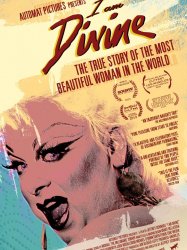
I Am Divine (2013)
, 1h30Origin USA
Genres Documentary
Themes Films about films, Films about music and musicians, Films about sexuality, Films about television, LGBT-related films, Documentary films about business, Documentary films about the film industry, Documentaire sur l'homosexualité, Documentary films about music and musicians, Documentaire sur une personnalité, Musical films, LGBT-related films, LGBT-related film
Actors Divine, Jayne Mansfield, John Waters, Tab Hunter, Ricki Lake, David Lochary
Roles Self (archive footage)
Rating74%





Le documentaire retrace la vie de Glenn Milstead, dont le personnage de Divine a été sacré « plus belle femme du monde ». Petit garçon timide, jeune homme complexé, il découvre les bars gays puis le travestissement. Un voisin passionné de cinéma, John Waters, le fait tourner dans ses premiers films. Avec ses amis habilleur et maquilleur, Milstead crée le personnage excessif et scandaleux de Divine qu'il interprète dans les films Mondo Trasho, Multiple Maniacs et Pink Flamingos. À la fin des années 1970, il se lance dans la chanson et fait plusieurs tournées aux États-Unis et en Europe. Il revient au cinéma en 1981 avec Polyester, puis dans Lust in the Dust de Paul Bartel et Wanda's Café. Peu après le succès de Hairspray, il meurt d'une crise cardiaque dans son sommeil.

Origin United-kingdom
Genres Documentary
Actors Brian Eno, Richard O'Brien, Ruby Wax, Divine, Derek Jarman, Leigh Bowery
Roles Self (archive footage)
Rating64%





As well as charting the latest incarnation of the Alternative Miss World, the film studies the history of the show itself, which first took place in 1972 and has had a number of high-profile celebrities both entering and judging it.
 , 4h
, 4hDirected by Daniel Farrands
Origin USA
Genres Documentary, Horror
Themes Films about films, Documentary films about business, Documentary films about the film industry, Serial killer films, Documentary films about films
Actors Heather Langenkamp, Wes Craven, Robert Englund, Robert Shaye, Lisa Wilcox, John Saxon
Roles Self (archive footage)
Rating85%





Depuis des décennies, Freddy Krueger s'est frayé un chemin à travers les rêves d'innombrables jeunes, effrayant plus d'un demi-milliard de dollars au box-office à travers huit films terrifiants et spectaculaires.

The Cockettes (2002)
, 1h40Origin USA
Genres Documentary
Themes Films about sexuality, LGBT-related films, Transgender in film, Documentaire sur l'homosexualité, Documentaire sur une personnalité, Documentary films about cities, LGBT-related films, LGBT-related film, Cross-dressing in film
Actors Candy Darling, Sylvia Miles, John Waters, Divine, Jackie Curtis, Angela Lansbury
Roles Self (archive footage)
Rating73%






In Bad Taste (2000)
, 1h40Directed by Steve Yeager
Origin USA
Genres Documentary
Themes Films about sexuality, LGBT-related films, Documentary films about business, Documentary films about the film industry, Documentaire sur l'homosexualité, Documentaire sur une personnalité, LGBT-related films, LGBT-related film
Actors John Waters, Steve Yeager, Steve Buscemi, Johnny Depp, Divine, Debbie Harry
Roles Self (archive footage)
Rating70%





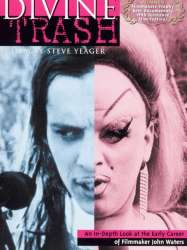
Divine Trash (1998)
, 1h37Directed by Steve Yeager
Origin USA
Genres Documentary
Themes Films about films, Films about sexuality, LGBT-related films, Documentary films about business, Documentary films about the film industry, Documentaire sur l'homosexualité, Documentaire sur une personnalité, LGBT-related films, LGBT-related film
Actors John Waters, Divine, Steve Yeager, Steve Buscemi, Mary Vivian Pearce, Robert Shaye
Roles Self
Rating76%





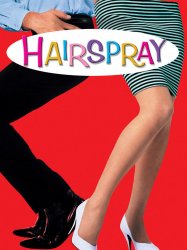
Hairspray (1988)
, 1h32Directed by John Waters
Origin USA
Genres Drama, Comedy, Romantic comedy, Musical, Romance
Themes Medical-themed films, Films about music and musicians, Obésité, Films about racism, Films about television, Musical films, Films about disabilities
Actors Ricki Lake, Debbie Harry, Sonny Bono, Divine, Jerry Stiller, Leslie Ann Powers
Roles Edna Turnblad / Arvin Hodgepile
Rating69%





Tracy Turnblad (Ricki Lake) and her best friend, Penny Pingleton (Leslie Ann Powers), audition for The Corny Collins Show, a popular Baltimore teenage dance show based on the real-life Buddy Deane Show. Penny is too nervous and stumbles over her answers, and another girl, Nadine, is cut for being black (there is a 'Negro Day' on the show on the last Thursday of every month, she is told). However, despite being overweight, Tracy is a strong enough dancer to become a regular on the show, infuriating the show's reigning queen, Amber Von Tussle (Colleen Fitzpatrick), a mean, privileged, beautiful high school classmate whose pushy stage parents, Velma (Debbie Harry) and Franklin Von Tussle (Sonny Bono), own Tilted Acres amusement park (based on Baltimore's Gwynn Oak Amusement Park, where racial problems occurred). Tracy steals Amber's boyfriend, Link Larkin (Michael St. Gerard), and competes against her for the title of Miss Auto Show 1963, fueling Amber's hatred of her.
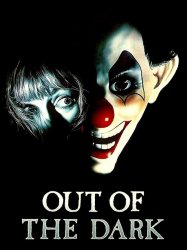
Out of the Dark (1988)
, 1h29Origin USA
Genres Thriller, Comedy, Horror, Erotic thriller
Themes Films about sexuality, Erotic films, Erotic thriller films
Actors Karen Black, Bud Cort, Geoffrey Lewis, Tracey Walter, Divine, Cameron Dye
Roles Det. Langella
Rating53%





"Suite Nothings" is a sleazy L.A. phone-sex hot-line voiced by failed models. Preying on them is Bobo, a psychotic killer who dresses in a clown costume. While the police try to uncover the clown's identity, the agency's models fall to Bobo's murderous rage.
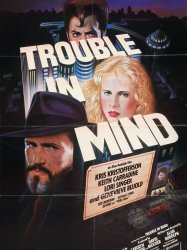
Trouble in Mind (1986)
, 1h51Directed by Alan Rudolph
Origin USA
Genres Drama, Thriller, Comedy, Comedy thriller, Action, Crime
Actors Kris Kristofferson, Keith Carradine, Lori Singer, Geneviève Bujold, Joe Morton, Divine
Roles Hilly Blue
Rating63%





In the mysterious metropolis of Rain City, a former policeman, Hawk, is out of prison after serving eight years on a murder rap. He returns to his former hangout, Wanda's Cafe, run by his former love, Wanda.

Lust in the Dust (1985)
, 1h24Directed by Paul Bartel
Origin USA
Genres Comedy, Action, Western, Spaghetti Western
Themes Films about sexuality, LGBT-related films, Transgender in film, LGBT-related films, LGBT-related film
Actors Divine, Lainie Kazan, Tab Hunter, Cesar Romero, Geoffrey Lewis, Henry Silva
Roles Rosie Velez
Rating59%





Dance-hall girl Rosie Velez (Divine), lost in the desert, is helped to safety by gunman Abel Wood (Tab Hunter). In the town of Chili Verde, at the saloon of Marguerita Ventura (Lainie Kazan), word of a treasure in gold brings Abel into conflict with outlaw Hard Case Williams (Geoffrey Lewis) and his gang.
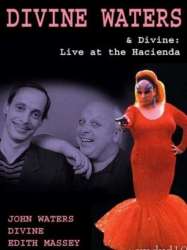
Divine Waters (1981)
, 1h50Directed by Vito Zagarrio
Origin USA
Genres Documentary
Actors Divine, John Waters, Edith Massey
Roles Self
Rating71%





This documentary focuses on the careers of influential partners in trash film, John Waters and Divine. The film includes interviews with Waters' parents and sister, actress Edith Massey sings two songs ("Punks, Get off the Grass" and "Fever"), as well as a live performance of Divine performing his song "Born to Be Cheap".
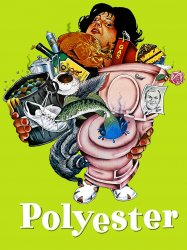
Polyester (1981)
, 1h30Directed by John Waters
Origin USA
Genres Drama, Comedy, Comedy-drama, Crime
Themes Films about families, Pregnancy films, Films about sexuality, Serial killer films
Actors Divine, Tab Hunter, Edith Massey, Mink Stole, Susan Lowe, Cookie Mueller
Roles Francine Fishpaw
Rating69%





The life of fat housewife Francine Fishpaw (Divine) is crumbling around her in her middle-class suburban Baltimore home. Her husband, Elmer (David Samson), is a polyester-clad lout who owns an X-rated theater, causing anti-pornography protesters to picket the Fishpaws' house. She also states that "all the neighborhood women spit at me" whenever she is at the shopping mall. Francine's children are Lu-Lu (Mary Garlington), her spoiled, slutty daughter, and Dexter (Ken King), her delinquent, glue-sniffing son who derives illicit pleasure from stomping on women's feet. Also adding to Francine's troubles is her snobby, class-conscious, cocaine-snorting mother, La Rue (Joni Ruth White), who robs Francine blind and only cares about her "valuable shopping time.

Tally Brown, New York (1979)
, 1h37Directed by Rosa von Praunheim
Genres Documentary
Themes Films about music and musicians, Films about sexuality, Films about television, LGBT-related films, Documentary films about business, Documentary films about the film industry, Documentary films about music and musicians, Documentary films about cities, LGBT-related films, LGBT-related film
Actors Holly Woodlawn, Divine, Taylor Mead, Magdalena Montezuma, Rosa von Praunheim, Andy Warhol
Rating70%






Female Trouble (1974)
, 1h32Directed by John Waters
Origin USA
Genres Comedy, Horror, Crime
Themes Films about families, Christmas films, Films about sexuality, Bisexuality-related films, LGBT-related films, LGBT-related films, LGBT-related film, Lesbian-related films
Actors Divine, David Lochary, Mary Vivian Pearce, Mink Stole, Edith Massey, Cookie Mueller
Roles Dawn Davenport / Earl Peterson
Rating70%





Dawn Davenport, a regular troublemaker at her all-girls school, receives a failing Geography grade and a sentence of writing lines for fighting, lying, cheating, and eating in class.

Pink Flamingos (1972)
, 1h33Directed by John Waters
Origin USA
Genres Comedy, Horror, Crime
Themes Films about families, Films about music and musicians, Films about sexuality, Bisexuality-related films, LGBT-related films, Transgender in film, Musical films, LGBT-related films, LGBT-related film, Lesbian-related films
Actors Divine, John Waters, David Lochary, Mary Vivian Pearce, Edith Massey, Mink Stole
Roles Divine / Babs Johnson
Rating60%





Underground criminal Divine lives under the pseudonym "Babs Johnson" with her mentally ill, egg-loving mother Edie, delinquent son Crackers, and traveling companion Cotton. They all live together in a pink trailer on the outskirts of Phoenix, Maryland, in front of which can be found a pair of eponymous plastic pink flamingos. After learning that Divine has been named "the filthiest person alive" by a tabloid paper, jealous rivals Connie and Raymond Marble set out to destroy her career but come undone in the process.
 Connection
Connection
